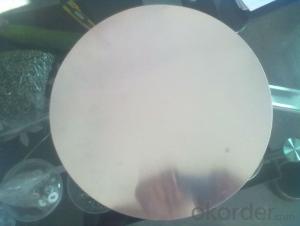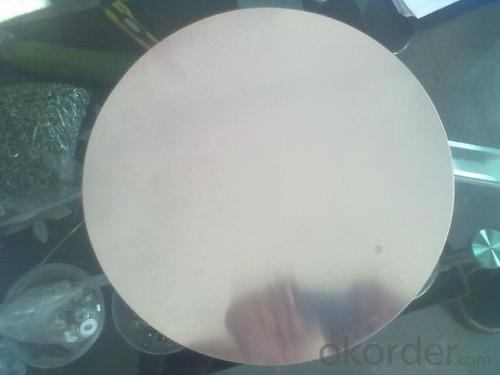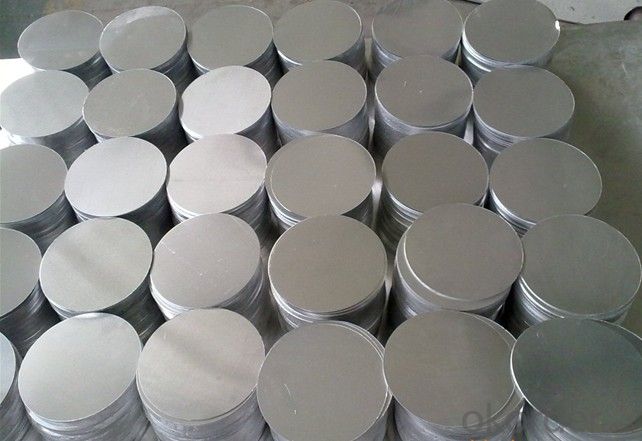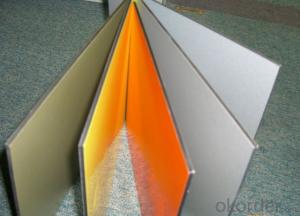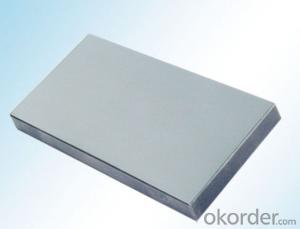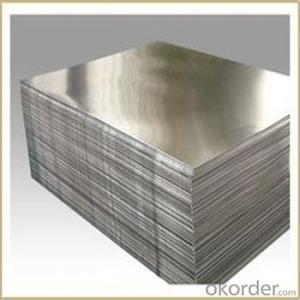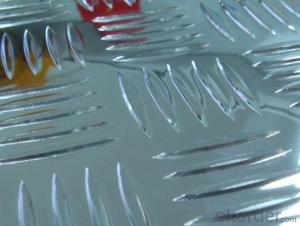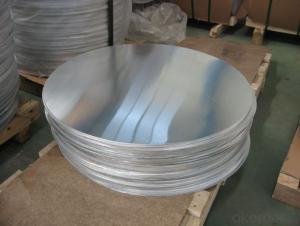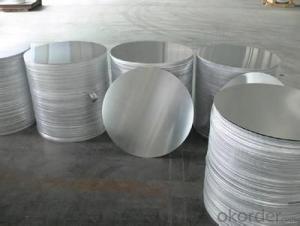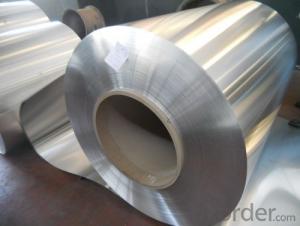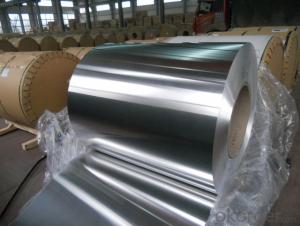0.05-4.0mm Thickness 3003 Bending Aluminum Sheets for Household
- Loading Port:
- Shanghai
- Payment Terms:
- TT OR LC
- Min Order Qty:
- 1 m.t.
- Supply Capability:
- 6000 m.t./month
OKorder Service Pledge
OKorder Financial Service
You Might Also Like
Specification
0.05-4.0mm Thickness 3003 Aluminum Circle For Household
Packaging & Delivery
| Packaging Details: | 25kg/carton-boxes(35*32*19CM) &Fumigation wooden-pallets (110*110*15cm) 20GP can loading 22 Ton,total 21 pallets,20 CBM. |
| Delivery Detail: | within 25 days |
Specifications
1).Excellent Surface Quality for lighting reflectors.
2).Excellent deep drawing and spinning quality.
3).Anodizing Quality
Aluminium circle/Aluminium discs/disks for cooking utensils Cookware
Aluminum disc Surface Finish: Bright & smooth surface, without flow lines, slightly oiled to avoid White rusting.Smooth,Brightly ,No Zone of Fracture ,No Scratched ,No oil Sludge
We enjoy a good reputation among our customers for our aluminum circle with high quality and competitive price, win high appreciation from our clients with the excellent workman-ship and professional ability. The quality matches with ISO 9001 quality management system.
It is equipped with 5 hot tandem rolling line, 4 cold mill production lines, 4 annealing surface machines and a complete finishing equipment.
Specification:
Alloy
Temper
Specification
Thickness
Diameter
1070,1050,3003,1100
O,H12,H14,H16
0.5-5.0mm
100-1200mm
Aluminum disc chemical Properties(WT.%)
Alloy
Si
Fe
Cu
Mn
Mg
Cr
Ni
Zn
Ca
V
Ti
Other
Min.A1
1050
0.25
0.4
0.05
0.05
0.05
-
-
0.05
-
0.05
0.03
0.03
99.5
1070
0.25
0.25
0.04
0.03
0.03
-
-
0.04
-
0.05
0.03
0.03
99.7
3003
0.6
0.7
0.05-0.2
1.0-1.5
-
-
-
0.1
-
-
-
0.15
96.95-96.75
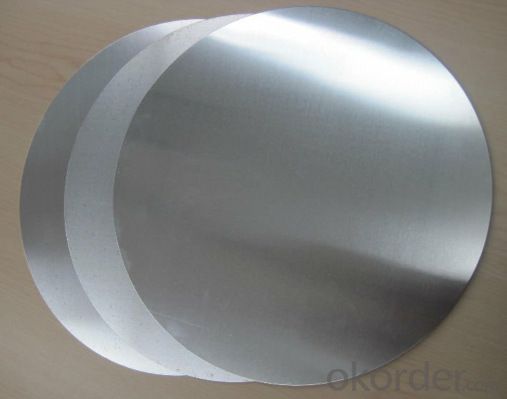
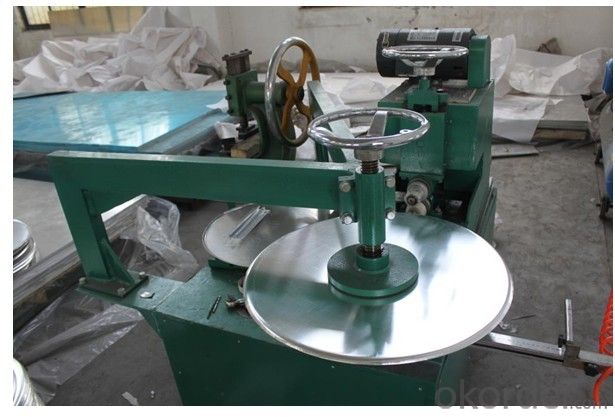
- Q: is general aluminum sheet fire-proof?
- nonfireproof
- Q: Are the aluminum sheets suitable for manufacturing electronic enclosures?
- Yes, aluminum sheets are suitable for manufacturing electronic enclosures. Aluminum is a popular choice for electronic enclosures due to its excellent combination of strength, durability, and lightweight properties. It offers good electrical conductivity, making it suitable for dissipating heat generated by electronic components. Additionally, aluminum sheets can be easily shaped, formed, and machined to meet the specific requirements of electronic enclosures, allowing for customization and flexibility in design. Its corrosion resistance properties also make it suitable for protecting electronic devices from environmental factors. Overall, aluminum sheets provide an ideal material solution for manufacturing electronic enclosures.
- Q: This question asks for an overview of the various types of coatings applied to aluminum profiles used in exterior cladding systems.
- <p>Aluminum profiles for exterior cladding are often coated to enhance their durability, weather resistance, and aesthetic appeal. Common types of coatings include: 1. Anodizing, which creates a protective oxide layer on the aluminum surface. 2. Powder coating, a popular method that provides a durable and colorful finish. 3. Fluorocarbon coating, known for its excellent weathering and UV resistance. 4. PVDF (Polyvinylidene Fluoride) coating, highly resistant to chemicals and suitable for marine environments. 5. Electrophoretic coating, which offers a smooth, even finish. 6. Hot-dip galvanizing, a process that coats aluminum with a protective layer of zinc. Each coating type has specific advantages and is chosen based on the performance requirements and environmental conditions of the project.</p>
- Q: Can the aluminum sheets be used for manufacturing furniture?
- Yes, aluminum sheets can be used for manufacturing furniture. Aluminum is a lightweight and durable material that can be easily shaped and formed into various furniture designs. It is also corrosion-resistant, making it suitable for both indoor and outdoor furniture applications.
- Q: Can aluminum sheets be used as heat shields?
- Aluminum sheets are capable of being used as heat shields. The reason for this is that aluminum possesses exceptional thermal conductivity, enabling it to effectively conduct and transfer heat away from its source. Moreover, aluminum exhibits a high melting point, which enables it to endure high temperatures without distorting or warping. These characteristics render aluminum sheets an optimal selection for heat shield purposes, which encompass safeguarding delicate components and structures from heat-related harm in various industries such as automotive, aerospace, and industrial sectors. Additionally, aluminum is lightweight and comparatively easy to mold, which makes it a practical alternative for heat shields that necessitate installation in confined areas or intricate designs. In summary, utilizing aluminum sheets as heat shields provides efficient thermal protection while offering durability, versatility, and cost-effectiveness.
- Q: why does 10% sulfuric acid not react with aluminum sheet?
- 10% sulfuric acid has a high concentration and will be passivated and formulate a layer of oxide film after reacting with aluminum,and the reaction will stop after seperating sulfuric acid and aluminum. there is a layer of Al2O3 oxide film on the surface of aluminum, so it's hard for sulfuric acid to break the oxide film and react with aluminum.
- Q: Can aluminum sheets be used for reflective surfaces?
- Yes, aluminum sheets can be used for reflective surfaces. Aluminum is known for its high reflectivity, making it an excellent material for creating reflective surfaces. Due to its smooth and highly polished finish, aluminum sheets can effectively reflect light, heat, and other forms of radiation. This property makes them suitable for a wide range of applications, including solar panels, mirrors, lamp reflectors, and reflective insulation. The use of aluminum sheets as reflective surfaces is advantageous due to their durability, lightweight nature, and resistance to corrosion.
- Q: How to clean the engine oil and kerosene on the surface of aluminum sheet?
- you can buy a bottle of petroleum ether in chemical raw material shop, it will be clean after rubbing, or you can buy solvent oil.
- Q: Are aluminum sheets resistant to impact?
- Yes, aluminum sheets are generally resistant to impact. Aluminum is a lightweight metal that has high strength and toughness, making it capable of withstanding impact forces. It has excellent energy absorption properties, which means it can absorb and dissipate the energy generated by an impact, minimizing damage to the sheet. Additionally, aluminum sheets can be further strengthened through various processes such as heat treatment or alloying, making them even more resistant to impact. However, the impact resistance of aluminum sheets can vary depending on the specific alloy and thickness used.
- Q: Are aluminum sheets suitable for use in marine or saltwater environments?
- Aluminum sheets are indeed appropriate for utilization in marine or saltwater settings. Aluminum boasts exceptional resistance to corrosion and is renowned for its capacity to endure the challenging conditions present in marine environments. In contrast to numerous other metals, when aluminum is exposed to oxygen, it forms a shielding oxide layer on its surface, which aids in thwarting further corrosion. This oxide layer serves as a barrier, shielding the underlying metal from saltwater and other detrimental elements. Furthermore, aluminum is both lightweight and robust, rendering it an optimal selection for marine applications that prioritize weight reduction. It is commonly employed in the construction of boats, ships, offshore structures, and various other marine apparatus.
Send your message to us
0.05-4.0mm Thickness 3003 Bending Aluminum Sheets for Household
- Loading Port:
- Shanghai
- Payment Terms:
- TT OR LC
- Min Order Qty:
- 1 m.t.
- Supply Capability:
- 6000 m.t./month
OKorder Service Pledge
OKorder Financial Service
Similar products
Hot products
Hot Searches
Related keywords
